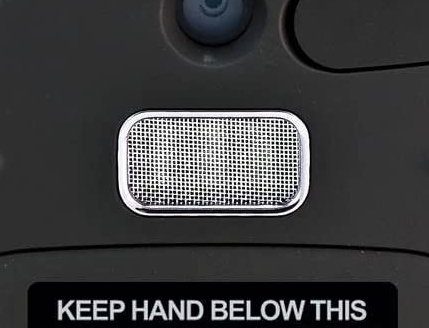You can see five rf connections to off-board antennas, all around the board. Each connection has a "hot" and a ground, because the antennas are variations of the Inverted F antenna. Most of the antenna PCBs look like FR4, which is not ideal.
The satellite antenna is probably the thing in the centre of the back shell just below the camera hole, above number 21 on your cutting pad in the second photo. This is the prime antenna position.
It makes contact with the two spring contacts on the right of the board, below the alert/vibrate motor. Note how there is no ground cut-out below these two contacts, unlike all the other antennas, so the back centre antenna must be a different design.
Edit Maybe that's a loudspeaker. It looks like it from some intact phone photos. Though the traces connecting to it are quite RF-like, they wouldn't bother doing that for a speaker?

If it is the monopole/IFA called E000118 then another clue is that the RF trace to the external antenna connector runs all the way around the camera and down to nearby the same RF can.
Inmarsat isatphone is a handheld phone using GEO satellites, it. It's been around since before 2010. It has a flip up-up quadrafilar helix antenna and uses an amazing 2400bps voice CODEC. Thuraya is alsoanother GEO-based service, satellitesatellites at 44 and 98 longitude only.
Cellphones long ago traded antenna performance for form factor, but when gain, pattern and circular polarisation really counts they go back to a big external antenna.